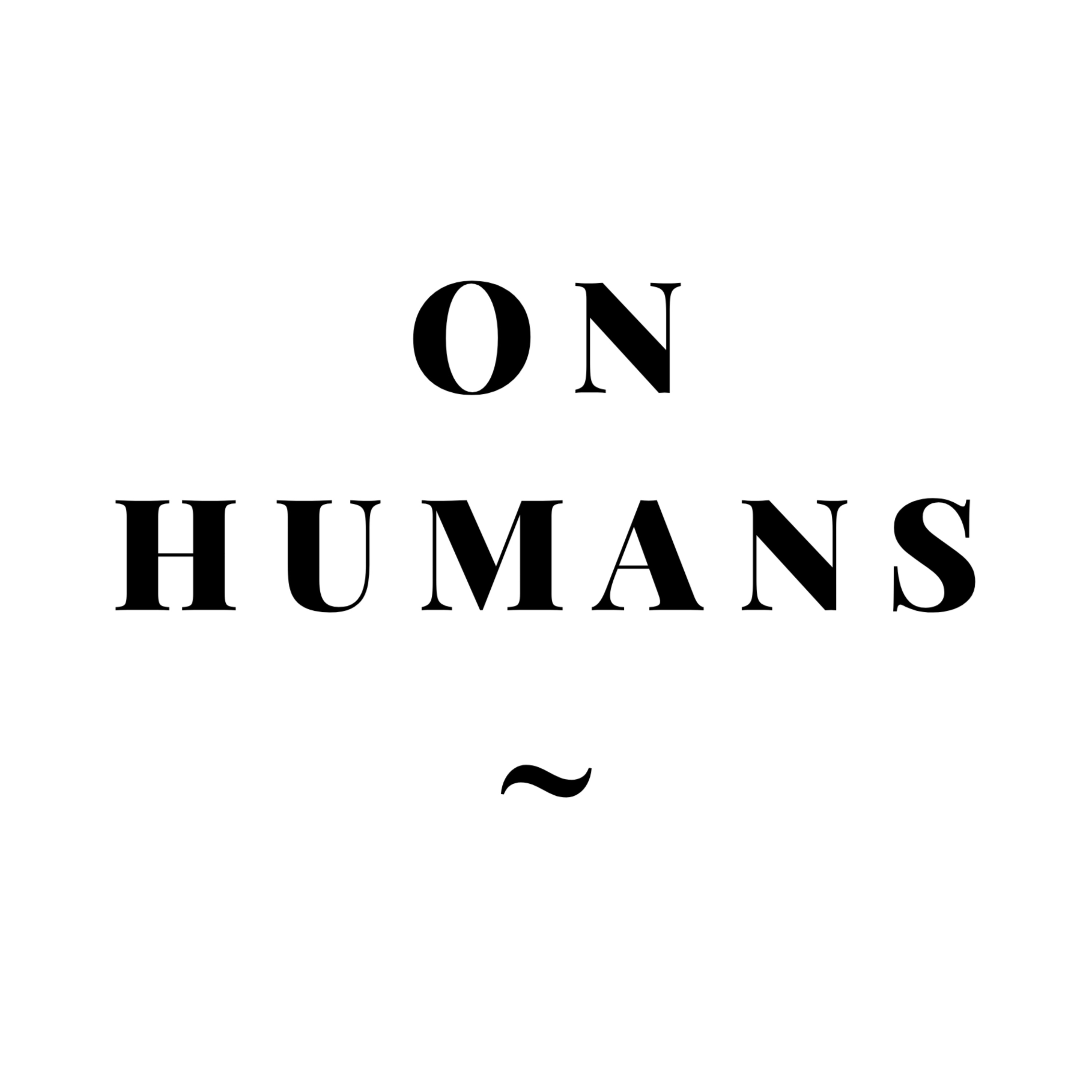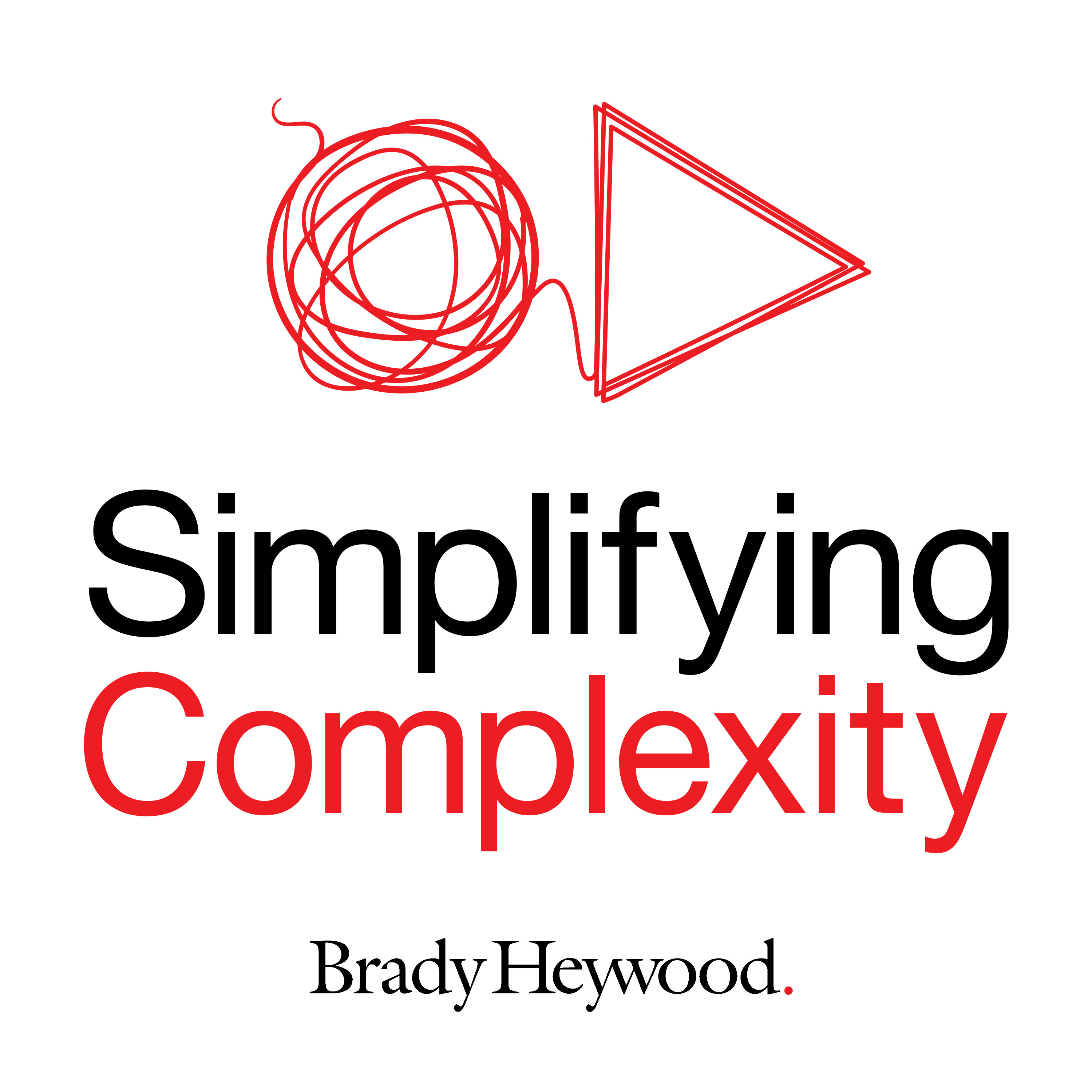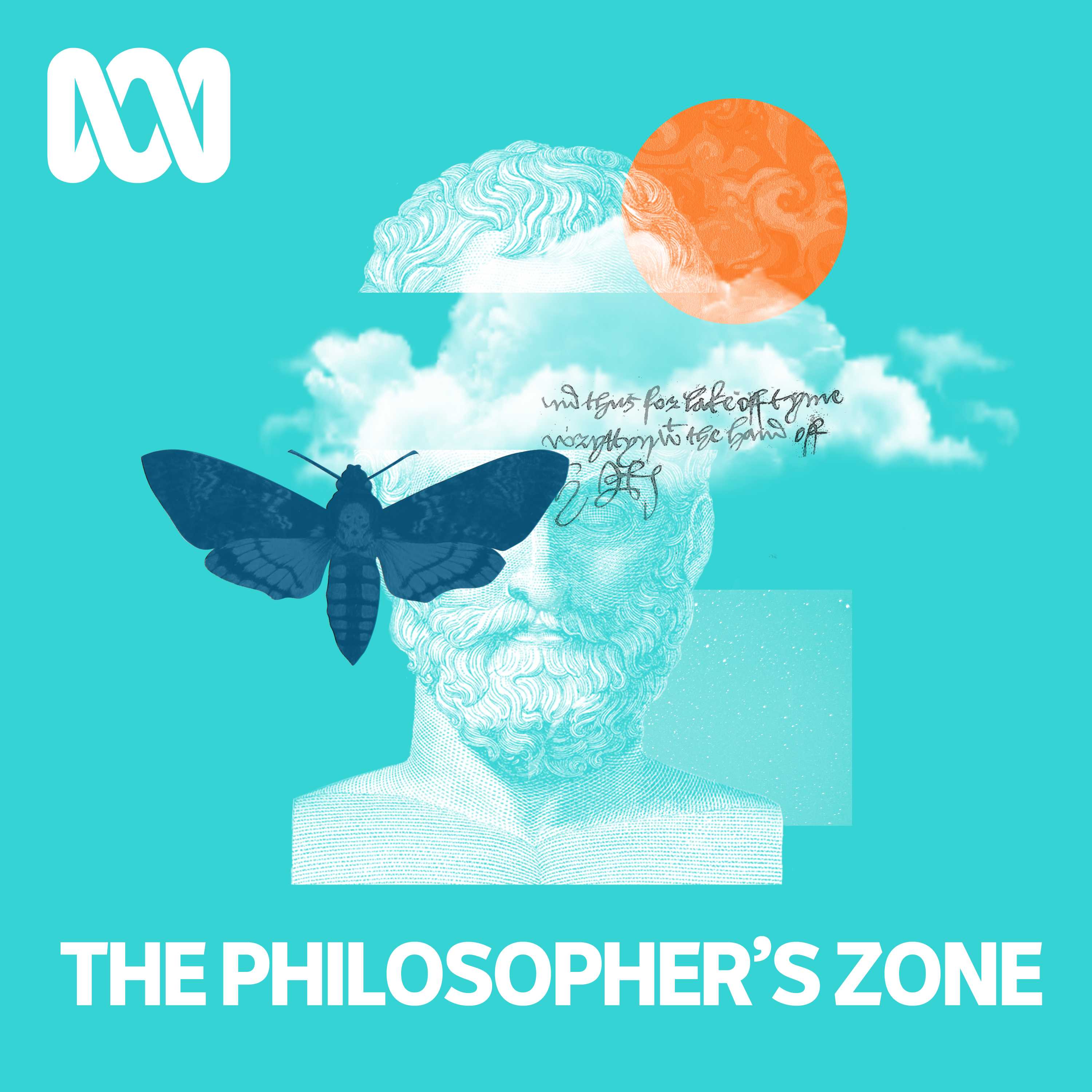
The HPS Podcast - Conversations from History, Philosophy and Social Studies of Science
Leading scholars in History, Philosophy and Social Studies of Science (HPS) introduce contemporary topics for a general audience. Developed by graduate students from the HPS program at the University of Melbourne.
Lead Hosts: Thomas Spiteri (2025) and Samara Greenwood (2023-2024).
Season Five is now here! Episodes released weekly. More information on the podcast can be found at hpsunimelb.org
The HPS Podcast - Conversations from History, Philosophy and Social Studies of Science
S3 Ep 4 - Dan Hicks on 'Public Scientific Controversies'
In today’s episode we have assistant professor and philosopher of science, Dan Hicks, taking us through better understanding public scientific controversies.
‘Public scientific controversies’ is a term Dan uses to capture a broad variety of controversies that involve both science and the public. This would include controversies around vaccines, genetically modified foods, medical research and climate change.
In studying why controversies like these arise and persist, Dan has found our common explanations are not always fit for purpose. Controversies aren’t all of one type, so a blanket diagnosis like, "it is all due to the public not properly understanding the science" or alternatively "the problem is widespread distrust of science," is not helpful.
Instead, Dan argues that what is required is more careful consideration of the specific processes and mechanisms at play in each case. Better diagnoses can then help us better determine appropriate and effective interventions.
Relevant links for Dan:
- Profile - Dan Hicks - About
- Research - Dan Hicks - Research
- Discussion - Dan Hicks - philosophy of science, data science, environmental policy
- Relevant Article - Dan Hicks - Misinformation and trustworthiness: Frenemies in the analysis of public scientific controversies
Other links related to the episode:
- The Dialectical Biologist | Levins & Lewontin
- 'Sheepfarming after Chernobyl' | Brian Wynne
- Impure Science: AIDS, Activism and the Politics of Knowledge | Steven Epstein
- Merchants of Doubt: How a Handful of Scientists Obscured the Truth on Issues from Tobacco Smoke to Climate Change | Naomi Oreskes & Erik Conway
- 'The Green New Deal is already changing the terms of the climate action debate' (theconversation.com)
The transcript for this episode can be found at: https://www.hpsunimelb.org/post/s3-ep4-dan-hicks-transcript
Thanks for listening to The HPS Podcast. You can find more about us on our website, Bluesky, Instagram and Facebook feeds.
This podcast would not be possible without the support of School of Historical and Philosophical Studies at the University of Melbourne and the Hansen Little Public Humanities Grant scheme.
Music by ComaStudio.
Website HPS Podcast | hpsunimelb.org
Hello and welcome back to The HPS Podcast, where we discuss all things history, philosophy, and social studies of science.
I’m Samara Greenwood, your host, and for today’s episode I have with me assistant professor and philosopher of science, Dan Hicks, who will be taking us through the ins and outs of better understanding public scientific controversies.
As you will hear from Dan, ‘public scientific controversies’ is a term they use to capture a broad variety of often well-known controversies that involve some kind of connection between science and the public. For example, the controversy might be concerns around vaccines, or genetically modified foods, or medical research, or climate change.
In studying cases like these, Dan has found our common explanations are not always fit for purpose. Controversies aren’t all of one type, and don’t all persist for the same primary reasons. Therefore, a blanket diagnosis like – it is all due to a ‘not properly understanding the science’ or alternatively a ‘widespread distrust of science’ is unhelpful.
Instead, what is required is more careful consideration of the specific processes and mechanisms at play in each case. Better diagnoses can help us better determine appropriate and effective interventions.
[00:01:40]
Samara Greenwood: Hello, Dan. I'm so glad you could join us on the podcast.
Dan Hicks: Hi, thank you so much for having me.
Samara Greenwood: Now, to start off, I'd love it if you could tell us a little bit about your background. How did you make your way to philosophy of science in this case?
Dan Hicks: My background's unusually sort of convoluted.
It took me a while to discover philosophy. Then, after I finished my PhD, it took several years for me to find a permanent job. There was even a stretch where I thought I had left academia for good but came back.
The shortest version is when I was growing up, I was always very interested in science but also very interested in politics and social justice issues. As an undergrad, I had the good fortune to go to a school where there were a lot of opportunities for me to take classes in history as well as philosophy of science and that really kind of sucked me in.
This wasn't my original plan, but again fortuitously when I got to grad school in philosophy, I had the opportunity to really focus on the relationship between science and society and this then becoming mainstream subfield that we call science and values.
[00:02:54]
Samara Greenwood: You mentioned your commitment to social justice, I'm really interested in how you see that fitting with your research in philosophy of science. Do they go hand in hand?
Dan Hicks: Yes. A lot of my intellectual background in philosophy includes feminist philosophy, which always has had a strong commitment to social justice. When I was starting my dissertation, at that point I identified as a man and I still mostly present in a masculine way even though I'm nonbinary, I got the advice not to work directly in feminist philosophy because no one would want to hire a straight white guy for a feminist philosophy position. So, I haven't published heavily in feminist philosophy per se, but if you look carefully in my philosophical papers, you'll see I'm bringing in a lot of feminist philosophy into the work that I do.
I am often very interested in case studies or controversies that relate to issues like environmental justice or racism and trying to theoretically contribute to those sorts of social justice efforts.
[00:04:06]
Samara Greenwood: Oh, that's wonderful. And that's really interesting. You bring up your interest and your background in feminist philosophy of science. I think there's so many rich resources there. Could you tell us a little bit more about what you saw as the value in feminist philosophy of science?
Dan Hicks: One way historically to understand the importance of feminist philosophy is that feminist philosophers were very interested in what we now call science and values at least as far back as the 1960s, 1970s and so this is decades before it emerged as a mainstream topic starting around 2009, 2010.
This means that feminist philosophers have had certain insights over several decades of working on these kinds of topics that haven't quite made it into the mainstream of philosophy of science yet.
I also think much the same thing about Marxist philosophy of science. For example, Lewontin and Levins' The Dialectical Biologist has a lot of important insights. I wish more philosophers of science today had some familiarity with that book.
[00:05:13]
Samara Greenwood: Where are you at the moment and what are you working on? What kind of topics?
Dan Hicks: Currently I'm an associate professor of philosophy at the University of California, Merced. I've been here since 2019. I started, I'd say, about five minutes before COVID, which was not the best time to start a new job, with a long distance move, but it has been good and I actually just got tenure here this past summer, so that part was great.
In terms of what I work on, I often describe what I do in terms of public scientific controversies, an umbrella term I like because it covers the very heterogeneous kinds of case studies that I've looked at over the course of my career.
Early in my career, I wrote several papers on controversies over genetically modified foods. I've written a few things on issues like climate or vaccines. I also have a few papers on safety of autonomous vehicles. Recently, the controversies I've been looking at have been on controversy surrounding race science, specifically race and intelligence. I've written a number of papers in the last few years specifically on air pollution controversies and a couple of papers overlapping with those on open science, open data and the replication crisis.
So, I work in a lot of different areas. Insofar as they all hang together, it's because I'm very interested in socially significant controversies that have a scientific aspect to them.
Sometimes this is publics being critical of what scientists are saying in some sense. Other times, when it comes to, say, race science, it's a little bit more about socially significant controversies that don't show up so much in the scientific community, but maybe get justified or purportedly justified by reference to science.
[00:07:15]
Samara Greenwood: That leads us well onto the topic that we're going to be talking about today, which is public scientific controversies and trust in science. So, could you start by giving us a little bit of background? What are some key aspects of this topic and how it relates to history and philosophy of science?
Dan Hicks: Well, I've already introduced public scientific controversies, so maybe some context related to trust and trust in science.
I'd say trust in science is one of the two very common frameworks that we, in a very expansive sense I'll get to in a second, but that we use to understand why controversies emerge and persist.
So, for example, when it comes to controversies surrounding vaccines, I think that's one that is often pretty well understood in terms of trust. Namely folks who are vaccine hesitant or have concerns about vaccines have a lack of trust in public health authorities, their particular physicians or maybe the pharmaceutical industry, something like this.
Why those controversies emerge and persist, for example, in the face of ample evidence that vaccines are safe and effective, I think can be well understood in terms of distrust or a lack of trust.
Other controversies, like, for example, the climate controversy is sometimes understood in terms of trust. More often, I think the climate controversy is understood using the other common conceptual framework that folks use here, which is often called the deficit model, where the idea is that the public are ignorant about, for example, the scientific consensus on climate change. And so, this is why this controversy persists.
I actually think that is a bad explanation for that particular controversy. There may be other controversies where I think something like the deficit model could make sense, but I think not the climate controversy.
The deficit model has been widely criticized by scholars in a number of fields, especially philosophy of science and the sociology of science, a bit in the field of science communication although some folks in science communication, still operate with variations on the deficit model.
[00:09:47]
Samara Greenwood: Could you just give us a sense first of all, what the deficit model is, which you briefly explained, but also what the key criticisms are. I think that would be interesting.
Dan Hicks: The deficit model is a way of thinking about the aims of science communication where the idea is that the public lacks knowledge about science. Usually knowledge of scientific facts, but over the past couple of decades especially in fields like science education this has expanded to public ignorance of the nature of science, which includes, for example, a little bit of scientific methodology and philosophy of science topics.
Whatever the deficit is of, the idea is that the public lacks knowledge of some critical aspect of science. So, the goal of science communication is to fill this deficit, improve the public knowledge of whatever aspect of science is in question.
I think the two core criticisms of this model are, first of all, that the public often are more knowledgeable than this way of thinking gives the public credit for. They may have a much more sophisticated attitude towards science than the idea that, ‘oh, the public thinks science delivers certainty, but science is fallible.’ Members of the public actually are pretty good with managing uncertainty.
So that's one core critique. The other core critique is that members of the public can put forward pretty sophisticated critiques of scientific research or science-based policy even without specialist knowledge in the science per se.
There are two classic examples of this. The first one comes from the sociologist Brian Wynne and the title of the paper is ‘Sheepfarming after Chernobyl’. In that paper, he looks at how in the wake of the Chernobyl disaster in the UK, there was a lot of concern about radiation coming down in the form of rain and then it taken up by the grass and then the sheep eat it and so the meat from the sheep might not be safe to eat.
What Wynne argues is that the sheep farmers, because of the local knowledge they had of very local microclimate conditions in their fields and where the sheep were grazing and so on, they actually had a much better, more sophisticated understanding of the potential for the sheep being irradiated than UK government scientists.
That's a case where because of this local knowledge, local expertise, quote unquote, ‘non-scientists’, could actually leverage pretty sophisticated technical critiques of scientific experts.
The other classic example of this is Steve Epstein's research on HIV AIDS activists, specifically the organization ACT UP, which was very big in the US. What Epstein shows is that members of the general public - members of this group ACT UP - in some cases people who hadn't finished high school because they were queer and got kicked out of their houses as teenagers - that they were able to come together collectively, educate themselves on the state of the art in biomedical research and virology of HIV AIDS and things like this. They were able to actually get FDA and the National Institutes of Health to adopt changes to the way clinical trials were conducted in order to get access to potential treatments to HIV AIDS patients much, much faster.
This is a case where a highly marginalized public, with limited access to formal education on average, was able to come together and put forward really significant, technically insightful critiques of very complicated, cutting-edge scientific research.
So trying to understand that controversy, just in terms of "Well, the public are ignorant", I think it's really empirically inadequate, but I think it also exhibits a kind of moral disrespect to the capacities or the epistemic capabilities of members of the general public.
[00:14:15]
Samara Greenwood: Okay. And so, then on the flip side, is it true that you see a trust or a lack of trust framework being more explanatory for some of these case studies and what does that entail?
Dan Hicks: Yes, I think thinking in terms of trust or specifically distrust can be insightful in some controversies but not in others, not in all controversies.
Controversies are very heterogeneous in the groups that are involved and what's at stake and so the reasons why a controversy persists.
For example, when it comes to vaccine hesitancy that is a case where at an individual level, say a parent of a young child has some concerns about vaccines and because of the way the medical system is organized, or because of a more generalized distrust of the pharmaceutical industry, maybe they feel like their concerns aren't taken seriously, and so to that extent they could actually have a justified distrust of vaccines.
This trust framework in the case of vaccine hesitancy can also be useful for identifying interventions that are potentially helpful. So, for example, having paediatricians or paediatric nurses take time with parents to listen to their concerns and answer their questions is a very effective way of addressing vaccine hesitancy at the individual level.
In the United States right now, we're getting larger scale anti vaccine movements, especially wrapped up in covid scepticism and US politics more generally.
Trust might still be the right framework, but on a much more systemic level. So, for example COVID scepticism and the likelihood that you're not vaccinated against COVID in the US is very strongly predicted by your political ideology. Basically, political conservatives in the US are much less likely to be vaccinated. This is due to the way conservative politics in the US has a degree of generalized distrust of institution at this point.
So an intervention where your physician sits down with you and answers your questions probably isn't going to be so helpful with that, but a trust framework can still be helpful for at least understanding the dynamics of the controversy and why, for example, this sort of one on one intervention probably won't be effective.
[00:16:59]
Samara Greenwood: I'm interested to know a bit more about that - where you see trust and climate science denial as well as what other factors as well as trust might be playing into that case.
Dan Hicks: So I actually think climate change is a case that isn't analysed well in terms of trust.
There is a degree of cynicism. So, climate denialists or climate sceptics will express a degree of cynicism about climate scientists in the vein of " they just say there's climate change, because that gets them grant money". There is a degree of that. But I don't think that cynicism is best understood as distrust.
I think a slightly better explanatory frame for the climate crisis is something like propaganda or disinformation. This goes back to Oreskes and Conway with their very influential book, Merchants of Doubt, where they effectively show that the fossil fuels industry has engaged in a disinformation campaign to confuse the public about climate change. I think that's a better explanatory framework than a trust framework for thinking about climate change.
When it comes to this misinformation framework for thinking about climate change, that has some empirical limitations as well. My primary argument for this comes from surveys that have been done by the Yale program on climate change. For about 20 years now, they've been conducting pretty reliable surveys of the US general public on various aspects of climate change. Now, when it comes to knowledge of the scientific consensus, very consistently overall US general public knowledge of the climate consensus has been kind of middling. I think, usually around 60 percent or so. Political liberals much higher than that, political conservatives much lower than that.
Okay, thus far that fits with this misinformation framework about climate change, but they also ask policy questions, and they ask support for various policies described very abstractly that would help with climate adaptation or mitigation. Some of these policy questions actually get majority support from conservative voters.
One that I like to show my students, when I teach this in classes, is a question about regulating carbon dioxide as a pollutant. They have these very nice visualizations; very nice maps and you can look at a breakdown by congressional district. In every congressional district, except usually like Wyoming, which is big oil producing state and a few in West Virginia, so in almost all congressional districts, including ones that are very strongly Republican, very strongly political conservative, there's majority support for regulating carbon dioxide as a pollutant. This has been the case for basically as long as they've been doing the surveys.
What I take from this is that there is support for climate policy among the general public, even though the general public's understanding of the climate consensus is kind of middling, and this is true even among conservatives, who in the US context we think of as being strongly anti environmentalist. No, you get down to the level of the general public, and even conservatives in the US are to some degree environmentalists. Nobody likes pollution.
So, I think probably a better explanatory frame for the climate controversy is the political power and political influence of the fossil fuels industry.
This framework explains why in the US we haven't had good climate policy until relatively recently at a national level, despite public support for this policy. I think this also is useful in most other countries around the world, especially wealthy countries, where climate scepticism is a much less prominent phenomenon, but there has still been global hesitancy or global delay in good climate policy. I think this is due to the influence of the fossil fuels industry. So that's the explanatory framework I prefer for thinking about the climate controversy.
I have sort of presented these as mutually exclusive options - like you can have trust or you can have this misinformation framework, or you can have this political power framework.
The situation is probably what social scientists call over determined, meaning all three of these mechanisms or processes are in play, just to greater degrees in kind of different contexts, depending on what aspect of the controversy you're trying to explain, and also, for example, in different geographical regions.
[00:21:57]
Samara Greenwood: Given these different kinds of explanatory frameworks, how does that then relate to how we should tackle public scientific controversies and trust in science in the public domain?
Dan Hicks: I think basically the diagnosis that you have of a particular controversy and depending on which mechanisms or processes are actually in play, will affect which interventions will be more or less effective.
I had mentioned with individual level vaccine hesitancy, a one-on-one 30 to 60 minutes for the vaccine hesitant parent to ask the paediatrician all of their questions and get them answered to their satisfaction is very effective.
But, when we're talking about a broader anti-institutional sentiment among political conservatives in the US, that one-on-one thing is probably less effective because the scepticism has been wrapped up into all of these other issues that will be much more difficult to handle.
When it comes to climate, if you think the issue is fossil fuel misinformation and the thing to do is educate people about the climate consensus, and this will somehow lead to sort of changes at the policy level, then that's the intervention you will, most likely focus on, that you would expect to be effective. But from my perspective that I think will be probably less effective than something that tries to directly challenge the political power of the fossil fuel industry.
So, for example folks may have heard of a Green New Deal approach where the idea of this approach is to not only manage the transition from fossil fuels to electrification, but also to provide at least some degree of support to fossil fuel industry workers and communities who are having to navigate that transition, for example, from in the US context, are more likely to be unionized jobs in the fossil fuel industry. Therefore, they are much more secure, much better pay, versus the solar industry in the US which is generally not unionized. So the pay is much lower, there is much less job security, and it requires retraining for someone, say, who's worked in an oil refinery to become a solar installer.
The idea with a Green New Deal is that by providing a degree of support to these workers and their communities, this can help undercut the kind of grassroots power that the fossil fuels industry gets from these workers saying, "Okay, climate change, but we're worried about our jobs. We're worried about our livelihoods. We're worried about what's going to happen to our community when we can't get this wealth from extracting oil anymore".
The idea with the Green New Deal is to undermine that alliance between the fossil fuel industry and organized labour. So that is an approach that, to my mind, would be more effective because it helps weaken the influence of the fossil fuel industry, weaken the political power that I think is primarily what's going on in that particular controversy.
So, for other controversies, they'll have their own dynamics and the way they should be managed will correspondingly be quite different.
[00:25:24]
Samara Greenwood: To finish off, I'm interested to know what you feel is unresolved in this area. Where would you like to see further research on scientific controversy and trust heading in the future?
Dan Hicks: I think there isn't a lot of scholarship on public scientific controversies as a general category. We don't have something like a taxonomy of different kinds of controversies that might help us think through, "okay, this controversy is similar to this and so maybe they could be managed similarly". So perhaps some sort of taxonomic systematizing work in the field could potentially be beneficial.
But I also think there's potentially value in just multiplying the cases and recognizing the heterogeneity. For example, the fact that trust might be a good framework for certain controversies, but not other controversies.
This then gives not just philosophers, historians, sociologists of science, but also scientists themselves, science communicators, members of the general public, a better understanding that there isn't something like a general crisis of trust in science, but instead smaller controversies and sometimes they get wrapped up in bigger controversies like vaccine hesitancy and us politics more generally, but that doesn't mean that every controversy is going to develop in the same exact way.
Samara Greenwood: That's an excellent spot to finish. So, I wanted to thank you so much, Dan, for being on the podcast. I have thoroughly enjoyed our conversation.
Dan Hicks: Yes, me too. Thank you so much for having me.
Podcasts we love
Check out these other fine podcasts recommended by us, not an algorithm.

The P-Value Podcast
Rachael Brown
Let's Talk SciComm
Unimelb SciComm
History and Philosophy of the Language Sciences
James McElvenny
In Our Time: Science
BBC Radio 4
Time to Eat the Dogs
Michael Robinson: historian of science and exploration
Nullius in Verba
Smriti Mehta and Daniël Lakens
The Disappearing Spoon: a science history podcast with Sam Kean
Sam Kean, Bleav
History of Philosophy Without Any Gaps
Peter Adamson
Narrative Now
Narrative Now
On Humans
Ilari Mäkelä
